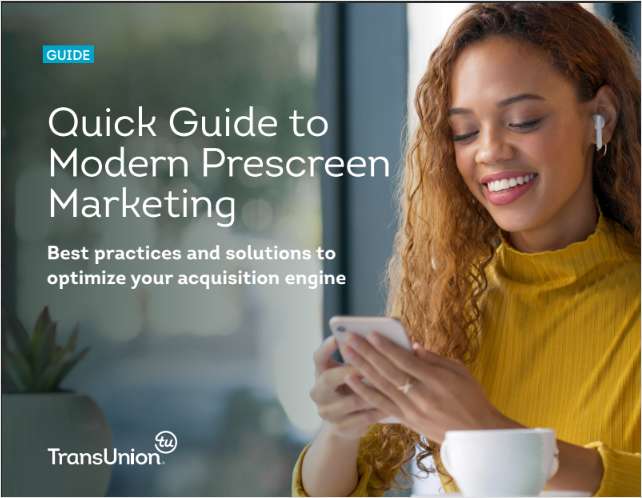Credit unions have always been known for a keen awareness of the unique needs of their members.
Credit unions can work with borrowers in more creative ways than banks. Some offer rescue loans for members in need of emergency money. Others may offer shared appreciation loan modifications, allowing a troubled member to share any increase in the home's appreciation with the credit union.
But over the past 20 years we’ve watched from a front-row seat as field service representatives witnessing an evolution among credit unions. For one thing, they are now more inclusive than ever, having expanded from targeted segment groups to community charters.
Today’s credit unions are positioned to provide resources to people who are underserved by traditional financial institutions, especially in recent years as those institutions have sought to recover from historically bad lending decisions.
At the same time, many credit unions are acting more bank-like and becoming financial aggregators. In addition to making more auto loans to their own members, many are buying paper from the Chrysler, Ford and GMAC captives. That means they’re dealing with borrowers far away from their historical local community membership base.
While all of this new business is certainly welcome, it means that credit unions must rethink their traditional loan servicing and collections philosophy. Indeed, it is an unpleasant truth that many credit unions have hit some strong headwinds in the collection area recently, often due to lack of experience.
Credit unions have had to become more efficient at handling diverse loans, including B- and C-quality. You can’t collect on those the way you do on A-borrowers, long the staple of the credit union world.
There is thus a growing need for more personal, face-to-face borrower contact. Such a strategy not only improves collections performance but also helps distressed members avoid repossession or foreclosure or get help with a home modification.
This type of intervention is not inconsistent with the traditional credit union philosophy of being member-oriented, as opposed to customer-driven. First and foremost, you are letting members know you want to help them protect their credit and to keep their homes and property.
Yet, a third of all credit unions nationwide still rely on telephone calls and letters–or costly repossessions and foreclosures–instead of speedier, in-person methods. Those conventional methods just don’t work anymore when you’re dealing with a far-flung membership base, many of whom are sophisticated in the ways to avoid creditors.
“As people move around the country, it is more difficult to have a personal presence with them,” said Frank DeAngelis, vice president and collections manager at Metro CU, Chelsea, Mass. “We really need a way to communicate with borrowers in a professional and concerned way, and personal presence makes a difference.”
The bonus value, according to DeAngelis, is that in-person borrower contact “gives us a sense of the condition of the property as well.” Avoiding automobile repossession can save as much as $500 a car, he adds.
It also benefits the credit union in terms of reduced loan losses. Sandra Kaye Robertson, vice president, consumer collections, at Smart Financial Credit Union in Houston, said her organization’s delinquency costs dropped 75% compared to five years ago, before it began contacting borrowers in person.
It is this kind of personal service that credit unions have always provided to their members, setting them above and apart from other financial institutions.
Jerry Rahon is COO at National Creditors Connection Inc.
Contact 800-300-0743 x7546 or [email protected]
Complete your profile to continue reading and get FREE access to CUTimes.com, part of your ALM digital membership.
Your access to unlimited CUTimes.com content isn’t changing.
Once you are an ALM digital member, you’ll receive:
- Breaking credit union news and analysis, on-site and via our newsletters and custom alerts
- Weekly Shared Accounts podcast featuring exclusive interviews with industry leaders
- Educational webcasts, white papers, and ebooks from industry thought leaders
- Critical coverage of the commercial real estate and financial advisory markets on our other ALM sites, GlobeSt.com and ThinkAdvisor.com
Already have an account? Sign In Now
© 2025 ALM Global, LLC, All Rights Reserved. Request academic re-use from www.copyright.com. All other uses, submit a request to [email protected]. For more information visit Asset & Logo Licensing.









